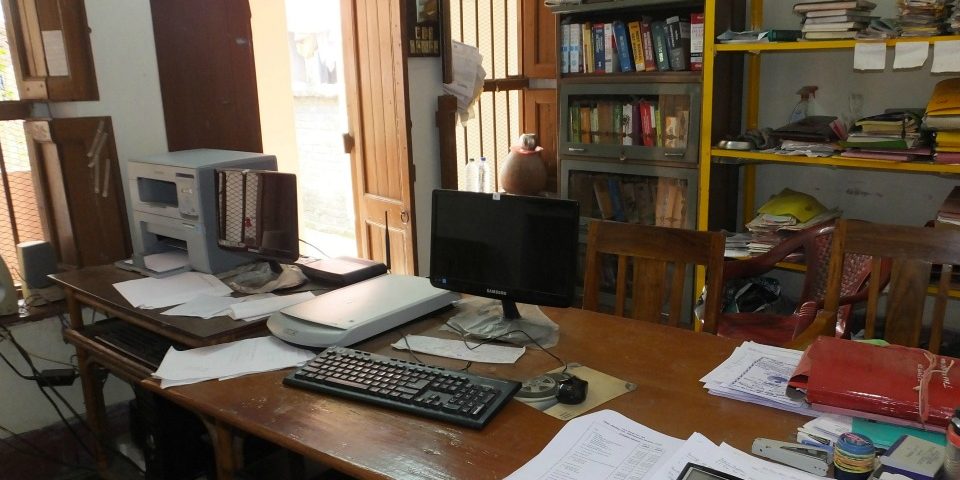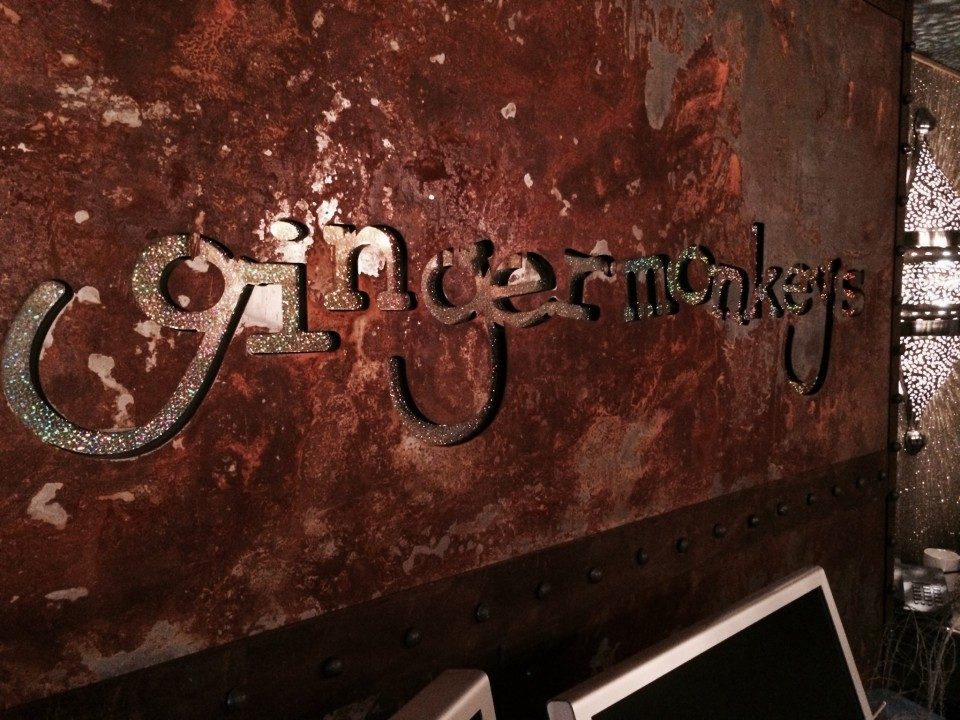15 Office Design Tricks That Will Increase Your Productivity at Work

Top 10 modern office fads
January 9, 2017
Dutch companies pioneer ‘healing office’ to cut staff sick days
January 24, 201715 Office Design Tricks That Will Increase Your Productivity at Work

Where you work has an enormous impact on how you work – on your ability to focus (and stay focused) and your overall ability to be productive. That means the design of your office, whether you work at home or in a larger company environment, is of supreme importance. This isn’t just about Feng Shui, this is about producing results and getting things done.
According to studies done on workplace and productivity, the most significant factor in determining an employee’s ability to focus is their physical environment. In fact, it’s been said that a well-designed office can increase your productivity about 20%. However, despite the studies and statistics, nearly half of the employers interviewed don’t consider workplace design a good business investment.
So what is a productivity hack to do? What if you work in an environment that doesn’t promote focus?
Check these 15 factors and make changes where you can. A little adjustment can produce a lot of impacts.
Lighting
Lighting is one of the most important factors in staying focused and feeling inspired to create, yet it’s one of the most overlooked and least invested in. Bad lighting can cause fatigue, eyestrain, headaches and overall irritability. Dark spaces can actually produce depression.
If you work in a company office:
You probably have no control over your general lighting so bring your own, if need be. Consider using natural light bulbs or a light therapy device.
If you work from a home office:
Open the windows and doors and let natural light in. Using lamps in a variety of areas for cloudy days or when it’s dark.
Chair and Table
If you’ve ever sat at a desk to do work but found yourself adjusting, stretching and moving too often to actually stay focused, then you’re aware of the importance of having a correctly fitted table and chair. In today’s work environment where so many of us are sitting for most of our day, it is critical that your throne fits your body probably.
Consider these quick ergonomic checks:
- Eyes 24-36 inches from the computer screen. The top of the monitor should be below or at eye-level.
- Feet should be on a foot rest or rest on the floor.
- A slightly reclined chair posture is best to reduce pressure on your spine and minimise lower back pain.
If you work in a company office:
Ask for an adjustable chair. Add pillows for your lower back or bum, if you need it. Many companies will also provide risers for computers to adjust the height of your computer screen (and a separate keyboard to keep your hands and wrists in the ideal position)
If you work from a home office:
Invest in a decent chair or at least use a few pillows to make the chair more comfortable. If the table is too high, add pillows to your chair. If it is too low, consider buying leg risers from your local hardware store and using books beneath your computer to raise the screen. Use a separate keyboard.
Clutter
Your mama was right, it’s important to clean up your room. Clutter may help the creative mind create, but it isn’t necessarily helpful for focus and productivity.
If you work from a company office: While you can’t control the cleanliness of the office at large, do keep your own environment around you clean. Spend 10 minutes every morning or evening making sure things are put away, filed, organised and generally out of sight so you’re not distracted by it later.
If you work from a home office: Because you work from home, the entire house or apartment is potential for distraction. If you can afford it, hire a professional cleaning service to keep your home clean. If not, schedule a specific day and time to clean your home. Commit to doing daily pickup at a specific time. And spend at least 10 minutes every day making sure your office is organised and tidy.
Room Color
The colours around us all have an effect on our moods and brain function. It evokes both a physical and emotional response. So choosing the right colours for your workspace has the ability to affect your productivity. For instance, blue has been said to illicit productivity. Mind you, too much of anything can be overwhelming, even colour.
If you work from a company office: Bring in items from home that are a certain colour that inspire you and keep you focused. Use postcards, magazine cutouts, even just blocks of colour will do.
If you work from a home office: If you work from home, you have much more control over the colours around you. Consider repainting a wall, adding colour to the table you work at, or hanging pictures that are dominated by a specific colour.
Room Temperature
Most offices keep their temperatures around 65-68 Fahrenheit but it turns out that this might not be good for productivity. Warmer rooms actually make people more productive.
If you work from a company office: Most offices are regulated by somebody else, so bring a space heater, sweaters and blankets to your workspace.
If you work from a home office: Depending on the season, open the windows or adjust the heat or a/c so that you’re more comfortable and warm. Pile on the sweaters in the winter or add a space heater to your feet.
Room Scents
Like the colour of the space you work in, our sense of smell can powerfully affect our mood, mindset and thus our productivity. Consider adding scents to your workspace to jar your mind into focus when you start to notice yourself drifting off.
Try using these scents to stay focused:
- Pine – Increases alertness
- Cinnamon – Improves focus
- Lavender – Helps to relax you during a stressful work day
- Peppermint – Lifts your mood
- Citrus (any) – Wakes you up and lifts your spirits
If you work from a company office: Most people will not appreciate added scents to their work environment so you’ll need to keep it subtle. Keep essential oils in your bag or drawer and when you’re in need of a boost put a few drops on a handkerchief or cotton ball.
If you work from a home office: Use candles, incense or essential oils. You can also simmer herbs and spices in the kitchen to fill your home with a warm scent.
Noise Level
The noise level in a work environment can vary greatly depending on the size of the team you work with, the office design and company culture. But make no mistake, the noise around you affects your ability to stay on task. Not only can it be distracting, it can also raise stress levels making your ability to sustain productivity far more difficult.
If you work from a company office: Bring in noise cancellation headphones and use music services like Spotify or Songza and choose concentration boosting sounds, like white noise. Find out if your office offers quiet work spaces for times when you need the utmost focus.
If you work from a home office: Sometimes the complete quiet can be as distracting as an office. Use a service like Coffivity to mimic the noise of a coffee shop, which has been said to help with concentration.
Air Quality
Air quality can drastically affect our ability to focus and think clearly. Get this: OSHA estimates that the total annual cost of poor air quality in office environments costs employers $15 billion “due to worker inefficiency and sick leave.” Yeah, it’s serious business.
If you work from a company office: Talk to them about installing air filters. If there is a way to bring in fresh air through windows or doors, arrange to have them opened for at least a portion of the day. If nothing else, get a personal air filter to have on your desk or nearby.
Also, get a plant (or better yet, have the company buy and use more plants in the office!). Plants are great at filtering the air and providing clean, purified oxygen.
If you work from a home office: Open windows and doors and let in the fresh air. Install an air filter or get a portable air filter to keep near your desk. And, yes, you too should get a plant.
Different Spaces
If you can manage it, give yourself more than one space to work from. Putting yourself in a new space with different qualities and things to look at quite literally shifts your brain and helps you stay focused.
If you work from a company office: Many offices offer a variety of environments to work from your personal space, lobbies, break out rooms, conference rooms, kitchens and eating areas and if you’re lucky, they also provide lounge areas. Use all these spaces to varying your routine. Make sure your supervisor knows so they don’t think you’re slacking off and know tat you’re actually getting more done!
If you work from a home office: If you work at a desk, add a comfortable couch or chair to the room. If your space is less flexible or ultra tiny, think about more creative ways to change your workspace. Rotate the pictures on your walls every couple of days. Sit on the other side of your desk. Get a lamp and multiple coloured bulbs. Or go work at a café, the library or in a park.
Organization of People
Most employers organise employees around job function or in specific divisions. Instead, studies show that people are more creative and productive when they are sitting with colleagues that share the same goal or client. Not only are you able to get answers and generate solutions quicker, but because you’re directly accountable to the people around you, you’re more likely to stay on task and productive.
If you work from a company office: Ask your employer if you can experiment by clustering your group together in a conference room for a day or a week. Get feedback from everybody involved. Show the results. If your company won’t make permanent adjustments, perhaps they’ll allow you to work together a couple times a week when the conference room or lounge area is free.
If you work from a home office: This is a little bit more difficult because when you work at home you’re not with colleagues. You can recreate a similar space digitally, however. Create a Skype group and have everyone logged in during working hours. You can do morning accountability and check-ins while remaining available for questions, solution-finding and general banter that promotes creativity.
Idea Storage
Ever been working hard when you’re suddenly distracted by a great idea? At first, you try to push it away, but then the next thing you know you’re 20 pages deep into an online search on the topic. Ideas should be encouraged and cultivated, but when they come right in the middle of another task it can be incredibly distracting. Instead, create a place to store your ideas that are easily accessed from your workspace.
For both a company and home office: Keep pads of paper around, have a chalk wall, get a white board – when you have a spark of inspiration write it down right away to get it out of your head then return to the task at hand. Then, at the end of the day or when you have free time, collect all the ideas and review them. With a little time and space, you can better decide if it’s worth pursuing or better to leave it on the back-burner.
Refreshment
Our brain needs nourishment to keep going, especially when we’re driving hard and staying focused. You can let a rumbling stomach go on for only so long before the brain shuts down. Assuming you’re different is like wanting your car to keep driving without having to stop and fill it with gas. A novel idea, but not realistic.
If you work from a company office: Pre-make snacks for the day and/or week. Or, bring in prepackaged snacks. Keep in mind that junk food has properties of diminishing returns so if you’re buying your food prepackaged think nuts, fruit, unsweetened yoghurts, and hummus and crackers. Likely, your company provides coffee, tea and water so you don’t have to worry about supplying that for yourself.
If you work from a home office: If you work from home, this can be a key distraction. Try to reduce the number of times you walk into the kitchen each day. To do this, keep quick and easy snacks pre-made or pre-packaged ready and near your desk. Keep a water bottle nearby. And consider bringing a kettle into your office and stocking tea and coffee so you’re not tempted to wander around the house and lose time poking through the pantry.
Bring in Nature
We are biological creatures, first and foremost. So we are deeply affected by our access to (or lack of) the natural world. It’s important for our psychological and physiological functioning, which directly affects our ability to be productive.
If you work from a company office: If you don’t have windows in or near your workspace, bring in pictures of the outdoor world. Keep a picture of something natural as your screensaver and/or desktop wallpaper. Take walks outdoors at lunch or in between major tasks. Just a few minutes outside in the fresh air and sunshine can boost our mood and shake out the doldrums. Be sure to add a plant to your desk, too!
If you work from a home office: Keep the shades open and, if you can, let in fresh air. If you can’t see anything natural out of your window, keep pictures of the natural world as your screensaver and/or desktop wallpaper. Take walks. Or, just step outside and put your feet on the ground. Put plants in your office – research shows that having live plants in your office makes you more productive, happier and less stressed.
Digital Space
For most people, our primary work is housed within our laptops and our physical environment simply the backdrop to our digital lives. Make sure your computer has software that helps you sculpt the digital environment that best elicits productivity. Use focus apps like this one or this to decrease distractions. Or design your day using intervals with an app like this one to keep you at your peak focus throughout the day.
Author – Heather Rees

